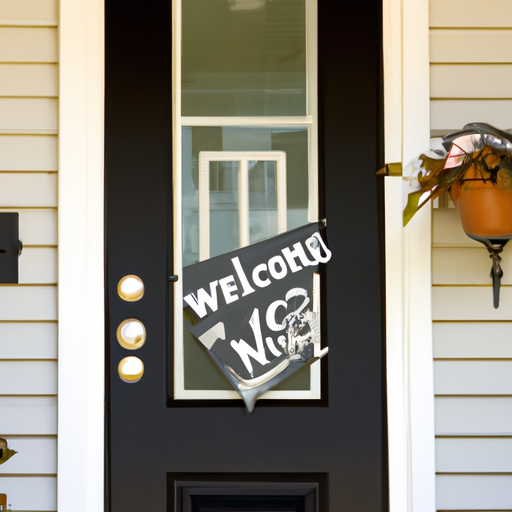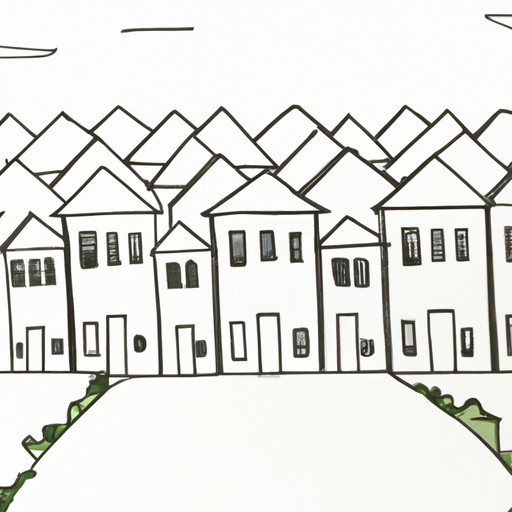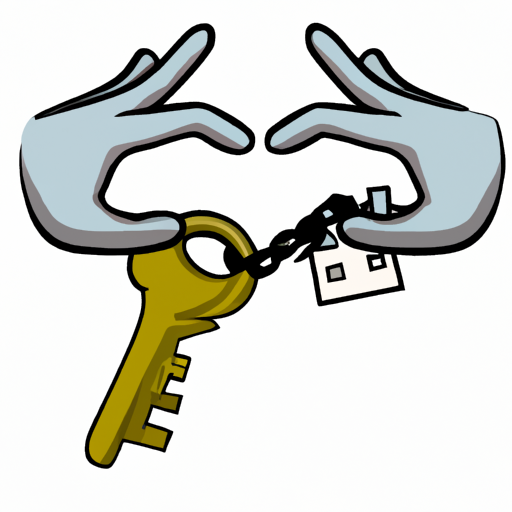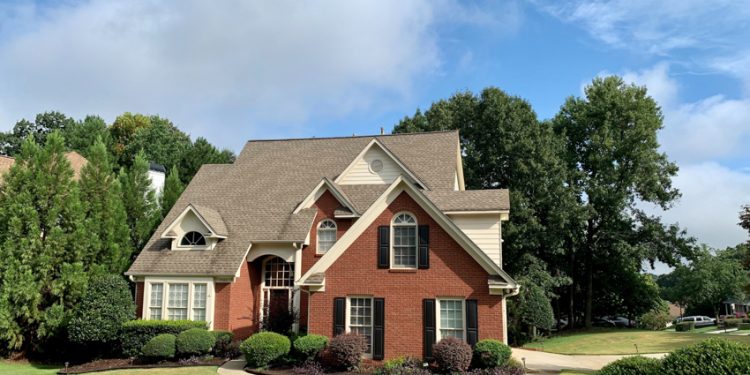Making an Offer That Stands Out
When it comes to buying or selling a home, making an offer that stands out can be the key to getting the best deal. By crafting an offer that stands out from the competition, you can help ensure that your offer is taken seriously and that you don’t end up paying too much for a property or selling your home too cheaply. Here are some tips to make your offer stand out:
- Consider making a larger down payment. A larger down payment shows that you are serious about buying the home and can also help you in the negotiations.
- Offer to close the deal quickly. A quick closing date can be attractive to a seller who is eager to move on.
- Include a personalized cover letter with your offer. A letter that expresses why you are interested in the property and your plans for the home can be a powerful way to make your offer stand out.
- Offer to pay the closing costs. This can be a great way to save money on the purchase of a home and make the sale more attractive to the seller.
- Offer to buy the home “as is.” This can be attractive to a seller who wants to avoid the hassle of making costly repairs.
- Consider offering a higher price. If you are confident that the property is worth more than the asking price, offering a higher price can be a great way to make your offer stand out.
- Offer to include certain items in the sale. If the seller has certain items that they would like to take with them when they move, you may be able to offer to include those items in the sale.
- Offer a contingency. A contingency is an agreement that allows the buyer to back out of the sale if certain conditions are not met. A contingency can be a great way to protect yourself and make your offer more attractive to the seller.
By taking these steps, you can make your offer stand out and increase your chances of getting the best deal when buying or selling a home. With a little bit of creativity, you can save money and get the most out of your home purchase or sale.

Understanding the Real Estate Market
Understanding the real estate market is key for making sound decisions when buying or selling a home. Knowing the current trends and pricing of your local market can make a big difference when it comes to making a smart investment. By understanding the real estate market, you can make sure you are getting the most bang for your buck when buying or selling a home.
The first step to understanding the real estate market is to research the current market trends. Start by looking into the average home prices in your area, as well as the average time it takes for homes to sell in your neighborhood. This information can help you determine if it is a buyer’s market or seller’s market. Knowing this will give you a better understanding of how to price your home when selling, or how to negotiate when making an offer on a home.
Once you have a better understanding of the real estate market in your area, it’s time to get creative. It’s important to look for unique ways to save money while buying or selling a home. For sellers, consider hosting an open house or offering incentives to potential buyers. For buyers, look into the possibility of taking over the seller’s existing loan, or ask for closing costs to be included in your offer.
Another great way to save money when buying or selling a home is to utilize the services of a real estate agent. A real estate agent can offer invaluable advice on how to navigate the market, as well as provide access to additional resources. An experienced real estate agent will be able to provide you with a comprehensive market analysis to help you make the best decision for your particular situation.
Finally, it’s important to stay up to date on the real estate market. Keep an eye on housing trends and news in your area, and be sure to take the time to research and understand the market before making any decisions. With a little bit of research and preparation, you can save yourself time and money while buying or selling a home.
Buying or selling a home can be an exciting and stressful experience. However, taking the time to understand the real estate market and get creative with potential savings can make the process much smoother. By researching the current market trends and utilizing the services of a real estate agent, you can save yourself time and money while making an educated decision.

Negotiating the Best Price
Negotiating the best price when buying or selling a home can be an intimidating process – especially if you’re new to the real estate game. However, there are a few simple and creative strategies you can use to save money and ensure you get the best deal. First, it’s important to set realistic expectations for the sale. Know what you’re willing to accept for the sale and what you’re willing to pay for the purchase. Having a clear idea of what you expect to get out of the sale will help you remain focused during the negotiation process.
Second, it’s important to develop a relationship with the real estate agent or broker. Many agents will have access to off-market listings or special deals that may not be available to the general public. Additionally, having a good rapport with the broker can make them more likely to negotiate a better price for you.
Third, it’s important to understand the market conditions in your area. If you’re selling, take into account the average listing prices of similar homes in the area. This will help you set a realistic asking price and make sure you’re receiving a fair value for your home. If you’re buying, look at the listing prices of comparable homes and consider how long they’ve been on the market. Properties that have been on the market for a long time may be more likely to accept a lower offer.
Fourth, research the home thoroughly before making an offer. Make sure you understand the condition of the home and its current market value. You can do this by asking for a copy of the seller’s disclosure statement or ordering a home inspection. Knowing the home’s condition and value can help you make an informed decision about the offer you submit.
Finally, have an open dialogue with the seller or buyer. Don’t be afraid to ask questions or raise objections if you feel the price isn’t fair. Even if the seller isn’t willing to negotiate, they may be open to other creative solutions that can help you save money. For example, they may offer to include certain appliances or furniture in the sale of the home.
Negotiating the best price when buying or selling a home requires patience and creativity. By setting realistic expectations, researching the market, understanding the home’s condition, and having an open dialogue with the seller or buyer, you can save money and get the best deal possible.

Knowing Your Financing Options
When it comes to buying or selling a home, being prepared financially can mean the difference between making a great real estate deal or walking away empty handed. Knowing your financing options can help you save money and make the most of your real estate transaction.
The first step to finding the best financing option is to understand your needs and goals. Are you looking to purchase a new home, or are you selling a home and moving to a different one? Do you need to borrow money to help cover the cost of the purchase or sale? Knowing the answers to these questions will help you determine the type of financing you should pursue.
Next, it’s important to understand the different types of financing that are available. Conventional loans, FHA loans, and VA loans are among the most common types of financing. Each of these loans has their own set of pros and cons, so it is important to research each in order to determine which one is best for you. You should also be sure to shop around and compare rates from different lenders to ensure that you are getting the best deal possible.
If you’re selling a home, you may also want to consider the option of seller financing. Seller financing allows the buyer to borrow money from the seller to help cover the cost of the purchase. This can be a great option for both the buyer and the seller as it can help save money on the transaction and help the seller avoid having to pay a large commission to a real estate agent.
Finally, you should explore the possibility of working with a mortgage broker. A mortgage broker can help you explore all of your financing options and find the best loan for your situation. They will also be able to negotiate with lenders on your behalf and help you get the best terms and rates for your loan.
Saving money when buying or selling a home can seem daunting, but with the right knowledge and preparation, you can make the most of your real estate transaction. Knowing your financing options is a great place to start, as it can help you save money and make the most of your purchase or sale. With the right research and exploration, you can be sure to find the best loan for your needs.

Hiring a Reputable Real Estate Agent
The home buying or selling process can be a tricky one. Without the expertise of a knowledgeable and experienced real estate agent, you may find yourself making mistakes that cost you timemoney, and stress. A reputable real estate agent is an invaluable asset to have when buying or selling a home.
When looking for an agent, it’s important to do your research. Make sure that the agent you hire has experience handling property transactions in your area. Ask around to get referrals and read online reviews. Take your time and make sure that the real estate agent you hire is one that you can trust.
When you’ve found the right agent, they can help you make the best decisions when it comes to buying or selling a home. They will be able to provide you with valuable insights and recommendations on how to get the best deal and the best price. They will also be able to help you determine the best time to list your home, and negotiate with potential buyers on your behalf.
A good real estate agent will also be able to help you save money by providing you with information about local incentives, tax credits, and other programs that can help reduce the cost of buying or selling a home. They can also help you understand the local market and identify potential pitfalls that could increase your costs.
In addition to helping you save money, a reputable real estate agent can also help you save time. They will be able to help you navigate the paperwork and handle the details of the transaction. This can help to reduce the stress associated with the home buying or selling process, and help you focus on other aspects of the move.
Finally, a reliable real estate agent can provide you with valuable advice and support when it comes to making the right decisions. This can help to ensure that you make the best decisions when it comes to buying or selling a home, and that you get the results that you want.
When it comes to buying or selling a home, hiring a reputable real estate agent is an essential part of the process. A good real estate agent can help you save money, save time, and make the best decisions for you and your family. With the right real estate agent by your side, you can be confident that you’ll be making the right decisions and getting the best deal possible.

Making Your Home Attractive to Buyers
When you’re selling a home, it’s important to make your house as attractive as possible to potential buyers. Making your home attractive to buyers is key to getting the best offer, and in turn, saving money. It’s important to remember that buyers are looking for a home that looks great, and if your home doesn’t look the part, you’ll likely have to accept a lower offer than you’d like. Here are a few tips on how to make your home attractive to buyers.
The first step to making your home attractive to buyers is to make sure it is well maintained. Buyers want to make sure they are buying a home that is in good condition. This means making sure the lawn is mowed, the windows are clean, the paint is fresh and the house is free of clutter. You want to make sure buyers can see themselves living in the home and that it doesn’t look like it needs a lot of work.
Another way to make your home attractive to buyers is to modernize it. This doesn’t mean you have to invest in a full-scale remodel, but rather, updating a few key features can make a big difference. For example, replacing old fixtures with newer, more modern fixtures can make a big difference in the look of your home. If you have an outdated kitchen, consider replacing the countertops and appliances to give it a more modern look.
Ensuring that your home is as energy efficient as possible is also important. Buyers are increasingly looking for homes that are energy efficient as it can save them money in the long run. Investing in energy efficient appliances and updating your insulation can help make your home more attractive to buyers.
When it comes to staging your home, it’s important to keep things neutral. Buyers want to see the potential of a home and it’s difficult to do so when it’s filled with your personal items. You want to make sure the house is decluttered and that the walls are painted a neutral color so buyers can envision themselves living in the house.
Finally, making sure your home is priced correctly is also key. You want to make sure you’re not asking too much for your home and that it’s priced competitively in the market. Working with an experienced real estate agent can help you price your home correctly and save money in the long run.
Making your home attractive to buyers is key to getting the best offer, and in turn, saving money. By following these tips and investing in some minor updates, you can make sure your home looks great to potential buyers and get the best offer possible.

Preparing Your Home for Sale
When it comes to buying or selling a home, it pays to prepare in advance. Preparing your home for sale can make a huge difference in the amount of money you can save during the process. Not only can you save money, but you can also increase the value of your home by making it look more attractive to potential buyers. Here are some tips to help you get started preparing your home for sale:
First, it’s important to declutter your home. This means getting rid of any items that you don’t need or use anymore. By clearing out the clutter, you’ll make your home look more inviting and spacious to buyers. You can also donate any unwanted items to charity and get a tax deduction for them.
Second, it’s important to make sure your home is clean and tidy. A clean home is much more attractive to buyers than one that is cluttered and dirty. Make sure to clean all the carpets, dust the shelves, and polish the floors. You may even want to hire a professional cleaning service to give your home a thorough cleaning before you put it on the market.
Third, you should consider making some minor repairs and upgrades to your home. This is an excellent way to increase its value and make it more appealing to buyers. For example, you may want to replace old light fixtures, fix leaky pipes, or repaint the walls. If you don’t have the time or money to do the repairs yourself, you can hire a handyman to do the work for you.
Fourth, you should stage your home before you put it on the market. This means arranging the furniture in an inviting way and adding some home accessories and decorations to make the place look more inviting. This is a great way to make your home stand out from the competition and attract more buyers.
Finally, it’s important to price your home correctly. You don’t want to set your price too low and leave money on the table. On the other hand, you don’t want to set your price too high and risk not selling your home. Do your research to get an accurate estimate of what your home is worth and then price it accordingly.
By following these tips, you can save money when buying or selling a home. Preparing your home for sale requires some effort and time, but it’s well worth it in the end. With a little bit of preparation, you can save money and increase the value of your home.

Understanding Closing Costs
When buying or selling a home, understanding closing costs can be a major key to saving money. Closing costs are fees paid at the closing of a real estate transaction, which can range from two to five percent of the purchase price. Knowing what to expect when it comes to closing costs can help you plan for them and save money in the long run.
First and foremost, it is important to know that closing costs can vary from state to state, so it is important to research what to expect in your particular area. It is also important to remember that closing costs are the responsibility of both the buyer and the seller, depending on the terms of the contract.
When it comes to the closing costs themselves, they can include a variety of different fees such as appraisal fees, title search and insurance fees, document preparation fees, attorney’s fees, survey fees, and more. It is important to review the closing costs and make sure that each one is necessary, as some may be negotiable.
Additionally, it is also important to understand who is responsible for paying each fee. Generally, the buyer is responsible for paying the majority of the closing costs, while the seller will typically pay for items such as the title insurance, transfer taxes, and the real estate commission. It is important to understand who is responsible for paying each fee in the contract, as this can help you save money.
When it comes to saving money on closing costs, there are a few options. One option is to shop around for the best rates when it comes to items such as title insurance and appraisal fees. Additionally, it is important to review the contract and negotiate any fees that may not be necessary.
Finally, it is also important to discuss the closing costs with your real estate agent, as they can provide valuable insight into the process and help you save money. They can also help you find the best deals and negotiate fees that may not be necessary.
Understanding closing costs is an essential part of buying or selling a home. By researching the fees that may apply in your area, shopping around for the best rates, negotiating fees, and discussing the process with your real estate agent, you can save money when it comes to closing costs. Doing so can make the process of buying or selling a home much easier and more cost-effective.


